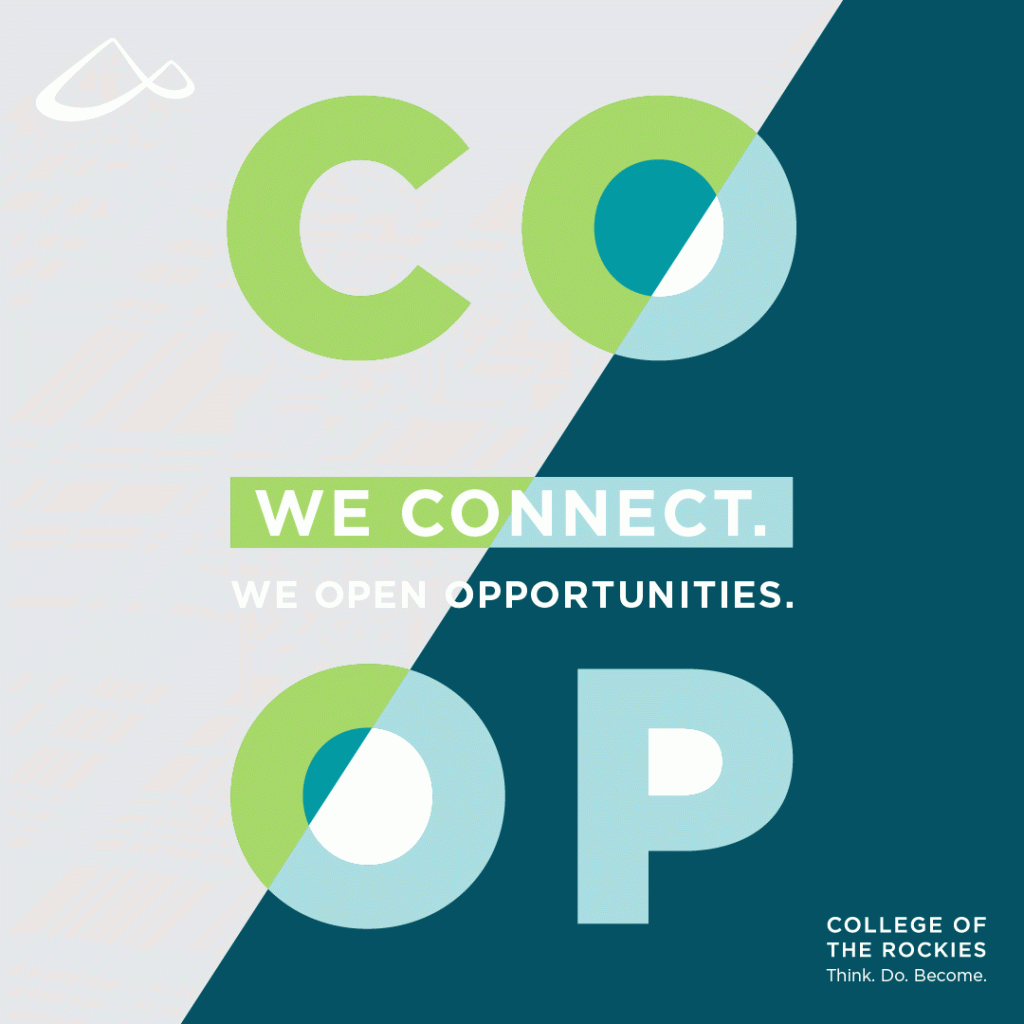Accounting
Accounting is the backbone of business operations, dealing with budgets, profit and loss, and financial planning. Moreover, it offers a solid foundation in financial principles and a pathway to becoming a trusted advisor in business decision-making processes.
As with all Business Management programs, our Accounting program has a focus on sustainability, preparing you to be competitive in the changing business landscape.
Our business students, including Accounting diploma students, excel every year at the Western Canada Business Competition, bringing home medals consistently.
Program Overview
The Accounting program offers you the flexibility of completing your diploma or certificate online, face-to-face, or a combination of the two.
This program starts in September and January each year. Part-time students applying in the Spring semester should select University General Studies as their program when applying.
Our Accounting diploma, in combination with our Bachelor of Business Admin program, provides the prerequisites for the CPA PEP program. It will also transfer into programs for CPHR (Chartered Professional in Human Resources), CPM (Certified Payroll Manager), and CFP (Certified Financial Planner). We recommend you speak with an Education Advisor regarding transfer credit.
But don’t stop there! The diploma ladders directly into Year 3 of the Bachelor of Business Administration in Sustainable Business Practices degree at the College which has the additional flexibility of part-time, full-time, face-to-face, or online learning. Complete both the diploma and degree – and you’re well-prepared to tackle the world of business!
Note: Upon successful completion of all Year 1 courses, you can graduate with a Business Management Certificate.
Accounting Diploma Program Structure:
Year 1 – Fall Semester
| Course | Title | Credits |
|---|---|---|
| ACCT 261 | Introductory Financial Accounting 1 | 3 |
| MGMT 212 | Business Law | 3 |
| ECON 101 | Microeconomics | 3 |
| COMC 101 or ENGL 100 | COMC 101 Technical and Professional Writing or ENGL 100 English Composition. Note: ENGL 100 may be required for degree-seeking students | 3 |
| MATH 101 or MATH 111 or MATH 103 | Finite Mathematics 1 or Business Mathematics or Differential Calculus | 3 |
| Total | 15 |
Year 1 – Winter Semester
| Course | Title | Credits |
|---|---|---|
| ACCT 262 | Introductory Financial Accounting 2 | 3 |
| COMC 102 | Advanced Professional Communication | 3 |
| COMP 154 | Computer Applications in Business | 3 |
| ECON 102 | Macroeconomics | 3 |
| STAT 106 | Statistics | 3 |
| Total | 15 |
Year 2 – Fall Semester
| Course | Title | Credits |
|---|---|---|
| ACCT 363 | Taxation 1 | 3 |
| ACCT 371 | Corporate Finance 1 | 3 |
| ACCT 373 | Intermediate Financial Reporting 1 | 3 |
| ACCT 375 | Introductory Management Accounting | 3 |
| ACCT 369 | Quantitative Methods in Business | 3 |
| Total | 15 |
Year 2 – Winter Semester
| Course | Title | Credits |
|---|---|---|
| ACCT 372 | Corporate Finance 2 | 3 |
| ACCT 374 | Intermediate Financial Reporting 2 | 3 |
| ACCT 364 | Taxation 2 | 3 |
| ACCT 350 | Accounting Software Applications | 3 |
| MGMT 411 | Business Management Review | 3 |
| Total | 15 |
Course Descriptions
Year 1 – Fall Semester
ACCT-261 – Introductory Financial Accounting 1
This course introduces students to the basic accounting cycle including preparation of useful financial statements. Students will analyze and record business transactions, create financial statements, and journal entries. Other topics include accounting for cash, receivables, inventory, and payroll.- Minimum Credits: 3
- Length: 45 hours
- Prerequisites: Either English Studies 12, English First Peoples 12, ENGL 090, or equivalent. Minimum 60% in either MATH 080, MATH 082, Workplace Mathematics 11, Foundations of Mathematics 11, Pre-Calculus 11, Apprenticeship Mathematics 12, Foundations of Mathematics 12, Computer Science 11, Computer Science 12, Pre-Calculus 12, Statistics 12, Geometry 12, or equivalent.
- Delivery Method: ? On-campus, Online
- Cost: $365.28
- Course Outline
MGMT-212 – Business Law
In this course, the underlying principles and rules of common law are examined together with applicable statute law. Torts are studied, including the making of contracts, their effect and completion; agency; legal forms of business; contracts of employment; sale of goods; negotiable instruments; methods of securing debt; and bankruptcy law.
- Minimum Credits: 3
- Length: 45 hours
- Prerequisites: Either English 12, English Studies 12, English First Peoples 12, ENGL 090, or equivalent.
- Delivery Method: ? On-campus, Online
- Cost: $365.28
- Course Outline
ECON-101 – Microeconomics
This course deals with the economic principles that govern the individual segments of the economy. Topics include supply and demand, price elasticity, utility, cost of production, perfect and imperfect market structures, theory of production, the demand for factors, and the pricing of factors. Some current business situations are discussed.
- Minimum Credits: 3
- Length: 45 hours
- Prerequisites: Minimum of 60% in either MATH 080, Foundations 11, Pre-Calculus 11, Essentials 11, Applications 11, Principles 11, Computer Science 11, Computer Science 12, Foundations of Math 12, Pre-Calculus 12, Statistics 12, Geometry 12, or equivalent.
- Delivery Method: ? On-campus, Online
- Cost: $365.28
- Course Outline
ENGL-100 – English Composition
English 100 focuses on composition strategies for writing across academic disciplines. Over the course of the term, students will develop an awareness of how rhetorical situations affect composition and refine their understanding of the fundamentals of essay writing (and clear communication more broadly), including paragraphing, thesis statements, essay structure, and citation methods. Students will also learn the fundamentals of critical thinking and analysis, persuasive writing techniques (including rhetorical appeals and modes), scholarly research, and academic reading.
- Minimum Credits: 3
- Length: 45 hours
- Prerequisites: Minimum 65% in either English 12, English Studies 12, English First Peoples 12, ENGL 090, or equivalent.
- Delivery Method: ? Blended, On-campus, Online
- Cost: $365.28
- Course Outline
COMC-101 – Technical and Professional Writing
In this introductory course, students develop practical writing skills for the workplace. Activities centre on effective writing styles and offer detailed guidelines on planning, organizing, composing and revising documents for a range of communication tasks. This course reviews some grammar essentials and leads students to be resourceful and successful communicators in traditional and virtual correspondence.
- Minimum Credits: 3
- Length: 45 hours
- Prerequisites: Minimum 65% in either English Studies 12, English First Peoples 12, ENGL 090, or equivalent.
- Delivery Method: ? On-campus, Online
- Cost: $365.28
- Course Outline
Electives (Choose one of the following Maths)
Choose from: MATH-101, MATH-111 or MATH-103
MATH-101 – Finite Mathematics 1
This course is intended for students who require an appreciation of higher mathematics, but don’t require calculus. MATH 101 stresses a logical and critical thinking approach while investigating the following topics: an introduction to matrices and to linear algebra; linear programming and the Simplex method; set theory, counting techniques and probability; and introduction to statistics; and Markov Processes.
- Minimum Credits: 3
- Length: 45 hours
- Prerequisites: Either a minimum grade of 65% in one of Foundations 11, Pre-Calculus 11, Applications 12, Principles 11, or MATH 080; or Foundations of Math 11 and 70% or higher in Foundations of Math 12; or Pre-Calculus 12; or Calculus 12; or minimum grade of 65% in both Statistics 12 and Computer Science 12.
- Delivery Method: ? On-campus, Online
- Cost: $365.28
- Course Outline
MATH-111 – Business Mathematics
This course emphasizes the mathematics required in general business processes. It begins with a brief review of arithmetic and algebra. These skills are then applied to business situations requiring the use of percentages, markup, simple interest and compound interest. The emphasis is on applied business mathematics and the use of a hand-held business calculator. This course is designed to prepare students for the mathematical and analytical applications required in subsequent business and economics courses.
- Minimum Credits: 3
- Length: 45 hours
- Prerequisites: Minimum of 60% in either MATH 080, Pre-Calculus 11, Foundations of Math 11, Applications of Math 11, Principles of Math 11, Computer Science 11, Computer Science 12, Foundations of Math 12, Pre-Calculus 12, Geometry 12, Statistics 12, Calculus 12, MATH 100, or equivalent.
- Delivery Method: ? On-campus, Online
- Cost: $365.28
- Course Outline
MATH-103 – Differential Calculus
This course is intended for students who are pursuing a Bachelor of Science degree. Topics include: functions, limits, continuity, derivatives, their interpretation, differentiation rules, techniques of differentiation, implicit differentiation, inverse functions, exponential functions, logarithms, applications of differentiation such as linear approximations, Newton’s method, related rates, analysis of graphs, and optimization, and the Mean Value Theorem. Calculus is a necessary step in any career in the sciences including Biology, Chemistry, Commerce, Computer Science, Engineering, Geology, Mathematics, Medicine, and Physics. It is also useful in any field which uses Statistics to analyze data.
- Minimum Credits: 3
- Length: 60 hours
- Prerequisites: Either a minimum of 65% in Math 090, Math 100, or Principles 12; or Pre-Calculus 11 AND Pre-Calculus 12 with a minimum of 65%; or Pre-Calculus 12 and a minimum of 75% in Calculus 12.
- Delivery Method: ? Blended
- Cost: $365.28
- Lab Fees: $83.73
- Total: $449.01
- Course Outline
Year 1 – Winter Semester
ACCT-262 – Introductory Financial Accounting 2
This course is a continuation of ACCT 261. This course includes capital assets, liabilities, partnerships, corporations, cash flow, and financial statement analysis.
- Minimum Credits: 3
- Length: 45 hours
- Prerequisites: A minimum grade of C- (55%) in ACCT 261.
- Delivery Method: ? On-campus, Online
- Cost: $365.28
- Course Outline
COMC-102 – Advanced Professional Communication
Emphasizing the link between research, rhetorical analysis and effective communication, this course provides an exploration of business writing techniques, presentation styles and research methodologies essential for success in business environments. Students will also gain an understanding on how design and visual elements enhance the readability and persuasiveness of communication practices. Practical application of concepts in real-world scenarios will be a key focus, with the aim of developing a sophisticated and effective communication skill set.
- Minimum Credits: 3
- Length: 45 hours
- Prerequisites: ENGL 100 or COMC 101
- Delivery Method: ? On-campus, Online
- Cost: $365.28
- Course Outline
COMP-154 – Computer Applications in Business
This course examines information systems theory and utilizes computer technology. Students will explore the application of technology in organizations. Students will investigate information systems, evaluate organizational needs, and develop effective solutions. Security, legal and ethical issues will be examined along with characteristics of professional administration. Microsoft Office applications, including Word, Excel, PowerPoint, Access and Outlook, will be utilized to create effective business artifacts and fulfill organizational needs.
- Minimum Credits: 3
- Length: 75 hours
- Prerequisites: Familiarity with Microsoft Office and basic computing skills, or COMP 153 are recommended.
- Delivery Method: ? On-campus, Online
- Cost: $365.28
- Lab Fees: $83.73
- Total: $449.01
- Course Outline
ECON-102 – Macroeconomics
This course presents the economic principles that govern the behaviour of the nation’s economy. Topics include production possibility, supply and demand, national income analysis, money and banking, fiscal and monetary policy, and international trade. Current Canadian economic problems are discussed.
- Minimum Credits: 3
- Length: 45 hours
- Prerequisites: Minimum of 60% in either MATH 080, Foundations 11, Pre-Calculus 11, Essentials 11, Applications 11, Principles 11, Computer Science 11, Computer Science 12, Foundations of Math 12, Pre-Calculus 12, Geometry 12, Statistics 12, Geometry 12, or equivalent.
- Delivery Method: ? On-campus, Online
- Cost: $365.28
- Course Outline
STAT-106 – Statistics
This course introduces the fundamental ideas of statistics and can be applied to any discipline. Topics include: collection, description, and presentation of data; calculating central tendency and dispersion; probability and statistical inference; hypothesis testing (means, proportions, variances, one and two samples); correlation and regression; decision making and sampling, Goodness of Fit Tests, and Contingency Tables.
- Minimum Credits: 3
- Length: 60 hours
- Prerequisites: A minimum of 60% in either Principles of Math 11, Foundations of Math 11, Applications of Math 11, Pre-Calculus Math 11, Statistics 12, Pre-Calculus 12, Calculus 12, MATH 080, or MATH 101; or a minimum grade of 65% in either Foundations of Math 12, Geometry 12, or Computer Science 12; or any grade in Foundations of Math 11 and 70% or higher in Foundations of Math 12; or a minimum grade of 60% in MATH 111.
- Delivery Method: ? On-campus, Online
- Cost: $365.28
- Lab Fees: $83.73
- Total: $449.01
- Course Outline
Year 2 – Fall Semester
ACCT-363 – Taxation 1
This course is an introduction to Canadian taxation. It focuses on the understanding of the nature and structure of the Income Tax Act. Topics covered in this course include liability for tax and rules for computing income, taxable income, allowable deductions and taxes payable for individuals.
- Minimum Credits: 3
- Length: 45 hours
- Prerequisites: A minimum grade of C- (55%) in ACCT 262.
- Delivery Method: ? On-campus, Online
- Cost: $365.28
- Course Outline
ACCT-371 – Corporate Finance 1
This course, along with ACCT 372, is an introduction to managerial finance. It focuses on the environment in which financial decisions are made, the analysis required to make financial decisions, and the theoretical framework on which the analysis is based. Topics covered include an introduction to taxation, the Canadian financial system, securities markets, the valuation of securities, capital budgeting, capital structure, the cost of capital, dividend policy, sources of financing, working capital management, international finance, and corporate reorganizations.
- Minimum Credits: 3
- Length: 45 hours
- Prerequisites: A minimum grade of C- (55%) in ACCT 262 and a minimum grade of C- (55%) in MATH 101, MATH 103 or MATH 111.
- Delivery Method: ? On-campus, Online
- Cost: $365.28
- Course Outline
ACCT-373 – Intermediate Financial Reporting 1
This course starts with a review of the accounting cycle and discussion of accounting concepts and principles. It is the first half of a two-part course in intermediate-level financial reporting. Topics covered include a conceptual framework, income statement and retained earnings statement, balance sheet and disclosure notes, cash flow statement, revenue and expense recognition and measurement, current monetary balances, inventory and cost of sales, capital assets, goodwill and deferred charges, amortization and impairment and investments in debt and equity securities.
- Minimum Credits: 3
- Length: 45 hours
- Prerequisites: A minimum grade of C- (55%) in ACCT 262 and a minimum grade of C- (55%) in either MATH 101, MATH 103 or MATH 111.
- Delivery Method: ? On-campus, Online
- Cost: $365.28
- Course Outline
ACCT-375 – Introductory Management Accounting
This course is an introduction to managerial and cost accounting. Topics include: introduction to managerial accounting, building blocks of managerial accounting, cost behaviour, cost volume profit analysis, job costing, activity based costing, short-term business decisions, master budget & responsibility accounting, flexible budgets and standard costs, performance evaluation & the balanced scorecard, capital investment decisions and the time value of money.
- Minimum Credits: 3
- Length: 45 hours
- Prerequisites: A minimum grade of C- (55%) in ACCT 262 and a C- (55%) in MATH 101, MATH 111 or MATH 113 or equivalent.
- Delivery Method: ? On-campus, Online
- Cost: $365.28
- Course Outline
ACCT-369 – Quantitative Methods in Business
This course is designed to help students learn to express organizational problems in mathematical terms. Topics include linear programming; transportation, assignment and transshipment problems; project scheduling (PERT/CPM); inventory and waiting line models; simulation; decision theory; and forecasting. Microsoft Excel will be used for solving various business problems.
- Minimum Credits: 3
- Length: 45 hours
- Prerequisites: A minimum grade of C- (55%) in STAT 106 and COMP 153 or COMP 154
- Delivery Method: ? On-campus, Online
- Cost: $365.28
- Course Outline
Year 2 – Winter Semester
ACCT-372 – Corporate Finance 2
This course develops analytical techniques and financial theories used to make optimal decisions in a corporate setting. The course builds on and extends the concepts and tools covered in ACCT 371. Students are exposed to key financial concepts and tools commonly used by managers in making sound financial decisions.
- Minimum Credits: 3
- Length: 45 hours
- Prerequisites: A minimum grade of C- (55%) in ACCT 371
- Delivery Method: ? On-campus, Online
- Cost: $365.28
- Course Outline
ACCT-374 – Intermediate Financial Reporting 2
This course is the second half of a two-part course in intermediate-level financial reporting. Topics covered include accounting for liabilities, shareholders’ equity, complex debt and equity instruments, corporate income taxes, tax losses, leases, pensions, earnings per share, accounting changes, cash flows, and other measurement and disclosure items.
- Minimum Credits: 3
- Length: 45 hours
- Prerequisites: A minimum grade of C- (55%) in ACCT 373
- Delivery Method: ? On-campus, Online
- Cost: $365.28
- Course Outline
ACCT-364 – Taxation 2
This companion course to ACCT 363 completes the introduction to Canadian taxation by focusing on corporate taxation. This course deals with GST, taxation of corporations, corporate reorganizations, partnerships, trusts and estate planning.
- Minimum Credits: 3
- Length: 45 hours
- Prerequisites: A minimum grade of C- (55%) in ACCT 363
- Delivery Method: ? On-campus, Online
- Cost: $365.28
- Course Outline
ACCT-350 – Accounting Software Application
This course provides students with a practical working knowledge of commonly used accounting software program Sage 50. Students will gain an understanding of using accounting software for the full accounting cycle. Topics covered include accounts receivable, accounts payable, payroll, bank reconciliations and month/year end processing.
- Minimum Credits: 3
- Length: 45 hours
- Prerequisites: A minimum grade of C- (55%) in ACCT 262, and a minimum grade of C- (55%) in COMP 154.
- Delivery Method: ? On-campus, Online
- Cost: $365.28
- Course Outline
MGMT-411 – Business Management Review
This is an intensive capstone course intended to pull together all the subjects covered in the Business Administration Diploma Program. This course is designed to involve the student in running a business in a team environment and to show how it all comes together by utilizing a computerized business simulation. Students design and present a business plan to a board of directors; make operating, financial, marketing and human resource decisions; and prepare business reports.
- Minimum Credits: 3
- Length: 45 hours
- Prerequisites: Completion of at least three semesters (15 courses) towards diploma; this course is taken in final semester before graduating with a diploma.
- Delivery Method: ? On-campus, Online
- Cost: $365.28
- Course Outline
Admission Requirements
Academic Requirements:
Complete all of the following
- Secondary school graduation or equivalent.
- Earned a minimum grade of C+ (65%) in at least 1 of the following:
- ENST 12 – English Studies 12
- ENFP 12 – English First Peoples 12
- ENGL090 – English – Provincial Level
Complete 1 of the following
- Earned a minimum grade of C (60%) in at least 1 of the following:
- FOM 11 – Foundations of Mathematics 11
- PREC 11 – Pre-Calculus 11
- STAT 12 – Statistics 12
- PREC 12 – Pre-Calculus 12
- CALC 12 – Calculus 12
- MATH080 – Mathematics – Advanced Level
- Earned a minimum grade of C+ (65%) in at least 1 of the following:
- FOM 12 – Foundations of Mathematics 12
- GEO 12 – Geometry 12
- CS 12 – Computer Science 12
Recommended Admission Requirements:
Experience using Microsoft Word and Excel is recommended.
Non-Academic Admission Requirements:
Students for whom English is a second language must meet the College’s English Language Proficiency Requirements.
Your Costs
Tuition and Fees for Domestic Students:
For the 2024/25 academic year (2024/SU, 2024/FA, 2025/WI, 2025/SP)
| Tuition Year 1: | $3,652.80 |
| Tuition Year 2: | $3,652.80 |
| Application Fee: | $30.00 |
| Student Association Fee: | $138.00 |
| Bus Pass Fee: | $177.60 |
| Lab Fee: | $167.46 |
| Health and Dental Fee: | $480.00 |
| Total | $8,298.66 |
*These prices are for domestic students and may not be 100% accurate. However, these estimates will give you an adequate idea of tuition and fees for our programs. These prices do not include textbook costs. All prices are subject to change. Tuition fees include an alumni fee, student activity fees, and a student technology fee. In certain cases a materials and supply fee may also be included. For more information, visit: Tuition and Fees.
Tuition and Fees for International Students
For the 2024/25 academic year (2024/SU, 2024/FA, 2025/WI, 2025/SP)
| Tuition Year 1 | $15,864.90 |
| Tuition Year 2 | $15,864.90 |
| Application Fee | $100.00 |
| International Fee | $100.00 |
| Student Association Fee | $138.00 |
| Bus Pass Fee | $177.60 |
| Lab Fee | $167.46 |
| Health and Dental Fee | $480.00 |
| Guard.me Insurance | $270.00 |
| Total | $33,162.86 |
*These prices are for international students and may not be 100% accurate. However, these estimates will give you an adequate idea of tuition and fees for our programs. These prices do not include textbook costs. All prices are subject to change. Tuition fees include an alumni fee, student activity fees, and a student technology fee. In certain cases a materials and supply fee may also be included. For more information, visit: Tuition and Fees.
Career Info and Pathways
With an education in accounting, you may choose to be self-employed as a consultant or to work for private or public sectors in organizations of all sizes. Just a few examples of career options include:
- Accounting Technician *
- Accounting and related clerks
- Banking, credit and other financial clerks
- Bookkeeper
- Payroll Administrators
With further education and/or experience, additional opportunities may include:
- Banking, credit, and other investment managers *
- Financial Auditor *
- Financial Manager *
- Other business service managers *
- Senior Managers – public and private sectors *
* High Opportunity Career
Accounting Diploma – Block Transfer Agreements
| To Institution | Program | |
|---|---|---|
| College of the Rockies | Bachelor of Business Administration | Planning Form |
| Capilano University | Bachelor of Business Administration Note: Applicants must meet Capilano University’s School of Business admission requirements and Capilano University’s admission and general English Language requirements. | Transfer Agreement |
| Royal Roads University | Bachelor of Arts in Professional Communication Note: Individual assessment required. In addition you must complete English 100 with a B or greater. | Transfer Agreement |
| University of Lethbridge | Post-Diploma Bachelor of Management Note: Graduates will be guaranteed admission if their diploma GPA is 3.0 or higher. | Transfer Agreement |
| University of Northern British Columbia | Bachelor Of Commerce | Transfer Information |
Celebrating Our Alumni

Program Details
Delivery Method:?
Blended, On-campus, Online
Credential:
Diploma
Categories:
Administrative & Accounting, Block Transfer Agreements with Other Institutions, Business, Finance & Accounting, University Studies
Interests:
Office, Start or Run Your Own Business
Contact Details
Cranbrook
2700 College Way,
Box 8500, Cranbrook, BC, V1C 5L7
Phone: 250-489-2751
Toll-free: 1-877-489-2687
Email: info@cotr.bc.ca


